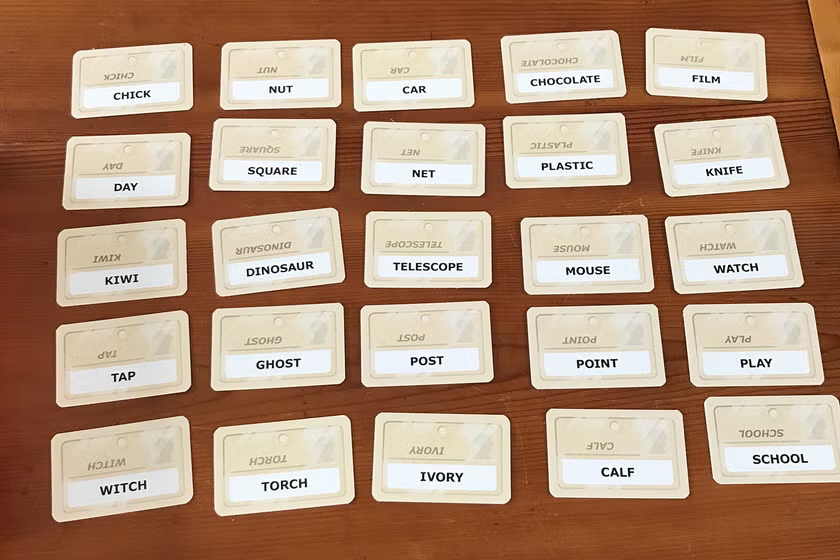 The Birth of Codenames: A New Kind of Word Game
The Birth of Codenames: A New Kind of Word Game
When Vlaada Chvátil released Codenames in 2015, the board game world quickly took notice. Known for designing complex strategy games like Through the Ages and Galaxy Trucker, Chvátil surprised fans with a simple yet deeply strategic party game.
Instead of dice or boards, Codenames used word association and deduction to create a thrilling spy-themed experience.
This unique approach helped it become one of the best-selling party games of all time.The game’s intuitive yet challenging mechanics attracted both casual and competitive players, ensuring its long-lasting success. Learn everything about Codenames game history below.
 How to Play Codenames: The Basics
How to Play Codenames: The Basics
Codenames is a team-based word game where players must connect words through clever associations.
Gameplay Breakdown:
- Two Teams: Players split into red and blue spy teams, each with a designated spymaster.
- The Grid: A 5×5 word grid represents codenames for agents, civilians, and an assassin.
- Clues & Guessing: Spymasters give one-word clues that connect multiple words on the board. Their teammates must guess the correct words while avoiding enemy agents and the assassin.
- Winning the Game: The first team to identify all their agents without hitting the assassin wins the game.
Codenames blends strategy, creativity, and teamwork, making it perfect for family game nights and competitive play.

 Why Codenames Became a Worldwide Phenomenon
Why Codenames Became a Worldwide Phenomenon
The Codenames game history is defined by its universal appeal and accessibility. Unlike many party games that rely on humor or trivia, Codenames challenges word association skills, making it enjoyable across different cultures and languages.
Key Factors Behind Its Success:
- Easy to Learn, Hard to Master: Simple rules allow anyone to play, but advanced strategies keep competitive players engaged.
- Endless Replayability: With hundreds of word combinations, no two games feel the same.
- Global Reach: Available in over 40 languages, including Codenames XXL and Codenames Duet for cooperative play.
- Award-Winning Design: Winner of the 2016 Spiel des Jahres, the most prestigious board game award.
Its social and intellectual challenges make it a staple in party game collections worldwide.
 Codenames’ Influence on Modern Party Games
Codenames’ Influence on Modern Party Games
Since its release, Codenames has inspired a new wave of word-based and deduction games. Its influence can be seen in:
- Decrypto (2018): A word-guessing game with cryptic communication mechanics.
- Just One (2018): A cooperative word game focused on giving unique clues.
- Trapwords (2018): Another Vlaada Chvátil game that builds on Codenames’ deduction elements.
Codenames proved that party games could be both intellectual and fun, influencing future social deduction and word association games.
 Where to Play Codenames Today?
Where to Play Codenames Today?
Whether you prefer physical board games or digital platforms, Codenames is widely available:
- Codenames Online (Official Site) – Play for free at codenames.game.
- Steam & Mobile Apps – Digital versions for PC and mobile devices.
- Local Board Game Cafés – Many gaming cafés include Codenames in their collections.
- Retail Stores & Online Shops – Physical copies can be found on Amazon, Target, and Walmart.
Codenames continues to thrive, with new editions and expansions keeping it fresh.
 Conclusion: A Party Game That Stands the Test of Time
Conclusion: A Party Game That Stands the Test of Time
The Codenames game history proves that a simple idea can transform the board game industry. By combining wordplay, teamwork, and deduction, Vlaada Chvátil created a timeless game that remains a party night favorite.
Whether you’re playing in-person or online, Codenames delivers endless fun and mental challenges.







